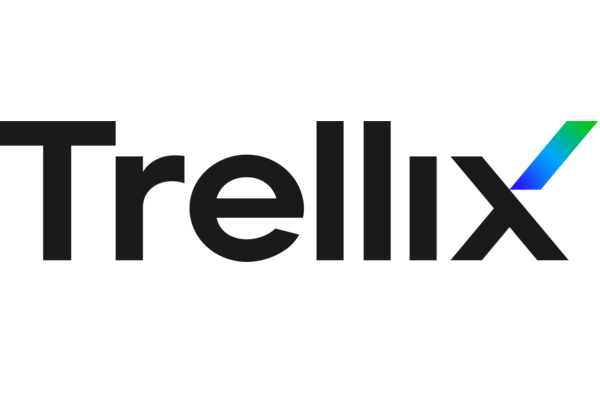Learn about the latest CyberSecurity innovations and solutions, to address ransomware, phishing, cloud and zero day attacks, plus newly emerging threats such as Hallucinations and Deepfakes tied to Generative AI.
Date/Time: Thursday, August 15, 10:30 am ET start
Scroll down to see the full and detailed agenda, plus expert speakers. Click on their name to view their Linkedin profile, and session title for additional information. There is time for live interaction/Q&A with the speakers so have your questions ready. CPE credit hours are provided.
Please use your Angelbeat account - created on the secure Memberspace platform, at no charge - to register to attend this webinar (hosted on Zoom), which also lets you download slides, watch on-demand videos, plus signup for future programs with one-click. If you already have an account, you will be asked to confirm your registration. Otherwise you are prompted to fill out a simple contact form.
10:35 Mayha Shah, Senior AI/ML Cloud Solution Architect, Microsoft
The AI Lie Detector: Using Azure Machine Learning to Evaluate AI Performance and Stop Hallucinations
There will be specific recommendations on identifying and stopping Deepfakes and Hallucinations, both of which create misleading, inaccurate if not completely false/wrong outputs from GenAI.
11:00 Xu Chen, Customer AI Engineer, Google
Vertex AI offers enterprise-grade access through the Secure Google Cloud to Gemini models, which are capable of understanding virtually any input, combining different types of information, and generating almost any output.
Learn how to prompt and test in Vertex AI with Gemini, using text, images, video, or code.
With Gemini’s advanced reasoning and state-of-the-art generation capabilities, developers can try sample prompts for extracting text from images, convert image text to JSON, and even generate answers about uploaded images to build next-gen AI applications.
In addition to Gemini, you can access and deploy Gemma, a family of lightweight, state-of-the-art open source models, built from the same research and technology used to create the Gemini models.
11:20 De'Shedric Boler, Solutions Architect, AWS
Amazon Bedrock is a fully managed service that offers a choice of high-performing foundation models (FMs) from leading AI companies like AI21 Labs, Anthropic, Cohere, Meta, Mistral AI, Stability AI, and Amazon through a single API, along with a broad set of capabilities you need to build generative AI applications with security, privacy, and responsible AI.
Using Amazon Bedrock, you can easily experiment with and evaluate top FMs for your use case, privately customize them with your data using techniques such as fine-tuning and Retrieval Augmented Generation (RAG), and build agents that execute tasks using your enterprise systems and data sources.
Since Amazon Bedrock is serverless, you don't have to manage any infrastructure, and you can securely integrate and deploy generative AI capabilities into your applications using the AWS services you are already familiar with.
11:40 Erich Kron, Security Awareness Advocate, Technical Evangelist
Ransomware Revealed: Understanding the Threat and Building Resilience through Employee Training
KnowBe4 Security Awareness Training is the Only Platform That Truly Addresses the Human Element of Cybersecurity. Learn about its AI-powered, new-school security awareness training and simulated phishing that allows organizations to drive awareness and change user behavior. This enables you to build a stronger security culture by effectively managing the ongoing problem of social engineering.
12:00 Martin Holste, CTO Cloud & AI, Trellix
Attacking and Defending Gen AI: Current Threats and Vulnerabilities in LLM's: Let’s unpack the myths and questions to truly understand the current state of AI and what it means to digital safety. In this session, we’ll discuss the OWASP Top 10 vulnerabilities for LLM apps and what they mean to organizations, whether they are currently using any AI or not. We'll also cover current methods attackers use to leverage Gen AI, and what you can do to defend against it.
12:20 Manish Ghosh, Global Head of Engineering, Industry Solutions Practice, AWS
Protecting and Recovering from Ransomware with AWS
Ransomware refers to a business model and a wide range of associated technologies that bad actors use to extort money from entities. Whether you’re just getting started or already building on AWS, we have resources dedicated to help you protect your critical systems and sensitive data against ransomware. You can use these resources to prepare your organization against an incident, test and build out a strategy to respond during an event, and recover more quickly from an event. You can also learn more about proactively protecting against ransomware as well as how AWS and the AWS Partner Network can help you reduce the risk of a ransom event.
Ransomware is not specific to the cloud—in fact, AWS can provide increased visibility and control over your security posture against malware. Raising your security posture is the first step to make it more difficult for a ransom event to occur in your environment. Raising your security posture begins with reviewing your security program and controls against best practices from AWS, third party organizations, and your internal policies.
12:40 Shaked Rotlevi, Technical Product Marketing Manager, Wiz
Build a Cloud Security Program for Resiliency, Scale and GenAI Applications: In an era where cloud resilience is paramount, financial institutions face the challenge of effectively managing risks in their cloud infrastructure. This session delves into essential strategies for comprehensive cloud security, addressing these highly relevant topics:
Discover how to achieve complete visibility, analyze risk, protect sensitive data and workloads, enhance threat detection, and maintain compliance.
Drawing on Wiz's extensive experience in securing cloud environments for financial institutions, learn about the capabilities of Wiz's leading cloud security platform.
Gain insights into minimizing risks, detecting threats early, and building a robust cloud resiliency plan tailored to the evolving demands of 2024, plus Generative AI Applications

















